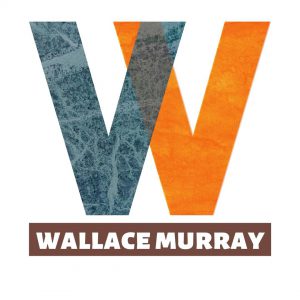Ready or Not, Psychedelic-Assisted Therapy Is Happening
The world isn’t ready for psychedelic-assisted therapy.
Don’t get me wrong: If you know me, you’re aware my life has been devoted to finding and developing cures for undertreated health problems, focusing on innovations in cannabinoid and psychedelic compounds. The message of hope that psychedelics might be the healing the world has been waiting for is not lost on me: I’m a believer in it, and I’ve seen enough to keep the fire lit—in my own research as well as the studies and progress of my peers.
As a scientist, I can see a great horizon ahead, one of powerful solutions discovered, changed lives, and the potential eradication of certain diseases.
A Dark Side
But there is a well-reported dark side to the work of those advancing psychedelic research, and it is one that is very challenging to resolve. We are not only dealing with progress and possibility but also with human psychology, with the mind: the most unchartered territory left for humanity.
There is still so much we do not understand about trauma and mental illness, and—when it comes to psychedelic-assisted therapy—still too many cracks in the floorboards for abuses to slip by unnoticed and fester.
One can note the human trials for these new substances typically involve testing people who are already vulnerable: whether suffering from posttraumatic stress disorder (PTSD), sexual-assault victimization, or depression. They hope psychedelics can help them heal, and they’ve tried everything else. If retraumatization is to be avoided, there has to be as much attention paid to the regulation of therapies as there is to the development of the drugs themselves.
And, I would add, here’s where we run into an unfortunate issue: We’re not there yet. The therapeutic component of psychedelic-assisted therapy is still in nascent form when it comes to testing and instituting proper regulations.
Let’s look at Oregon, for example. Just this year, the state became the pioneering first to legalize both the manufacture and administration of psilocybin, with the caveat that the drug must be administered under the supervision of a facilitator.
The Oregon Health Authority began accepting applications for Psilocybin Service Facilitator licenses on January 2, 2023, and the requirements were simple: You have to be an Oregon resident of 21 years of age or older with a high-school diploma or equivalent and a criminal background check, then you have to complete 160 hours of training and 40 hours of hands-on experience in their psilocybin facilitator training program, finalized by an exam that determines your eligibility. Once you pass, you’re in. No other mental health treatment experience or trauma-informed care is required.
Trauma-Informed Care
And there are plenty of reasons why trauma-informed care is pivotal. Whether it comes to inappropriate touch between therapist and client in the gray space of consent in drug-induced therapies, the variety of therapeutic approaches permitted but not necessarily tested, or insufficient care and follow-through after the trials themselves, there is still much ground to cover in ensuring proper regulation around psychedelic-assisted therapy.
And time is running out.
Come July of this year, Australia will recognize and allow the prescription of psilocybin and MDMA for the treatment of certain mental health conditions. The Multidisciplinary Association of Psychedelic Studies (MAPS) announced pending U.S. Food and Drug Administration approval for MDMA as a treatment for PTSD as early as 2024. Ready or not, psychedelic-assisted therapy will happen. And our actions now will determine whether it will be the force of healing it’s anticipated to be or yet another avenue of harm.
Now, I wouldn’t be true to my roots as a scientist if I didn’t highlight one further possibility, and a question that has motivated my own research: Can we create a truly safe psychedelic medicine, not dependent on a therapeutic setting? I ask this because, among the many reports of ethical and sexual misconduct related to psychedelic-assisted therapy, the abuses hinge on the actual therapy rather than the psychedelic itself.
I first heard about the novel compound MEAI (5-methoxy-2-aminoindane) in 2020. At that point in time, the evidence from use of the drug was anecdotal but powerful. I heard stories of countless individuals and families who were drinking MEAI along with alcohol, and finding that, after taking MEAI, their desire for alcohol simply…stopped. There was no therapeutic component. There was no talking about it. They just didn’t want to drink anymore.
In preclinical trials, we tested the molecule on rodents that were addicted to alcohol and cocaine. Not only were the MEAI-treated mice able to stop their addictive behavior, but there was also evidence to suggest that the molecule did not trigger a strong sense of “reward,” which researchers use to determine whether a substance is addictive. Furthermore, the molecule showed no signs of organ damage or harm—quite the opposite: In obese rodents, metabolic function significantly improved, and we also saw changes in energy expenditure, fat storage, and glucose utilization to promote weight loss.
There are promising research initiatives going on in the field right now, working to take the high out of psychedelics in order to remove some of the potential obstacles keeping a lot of folks away from these drugs. Whether or not the “trip” is the true lynchpin of psychedelic healing experiences is being questioned, and new solutions discovered, tested, and regulated.
I got into the field of psychedelic research and development because I truly believe in the healing available here. But we can’t shy away from shining light into the dark corners of our industry. Identifying harm does not mean regression—rather, it’s a way of moving forward with open eyes, clearing a path for the true potential of this movement to bring safe and effective health solutions to the world.
Source: Read Here

